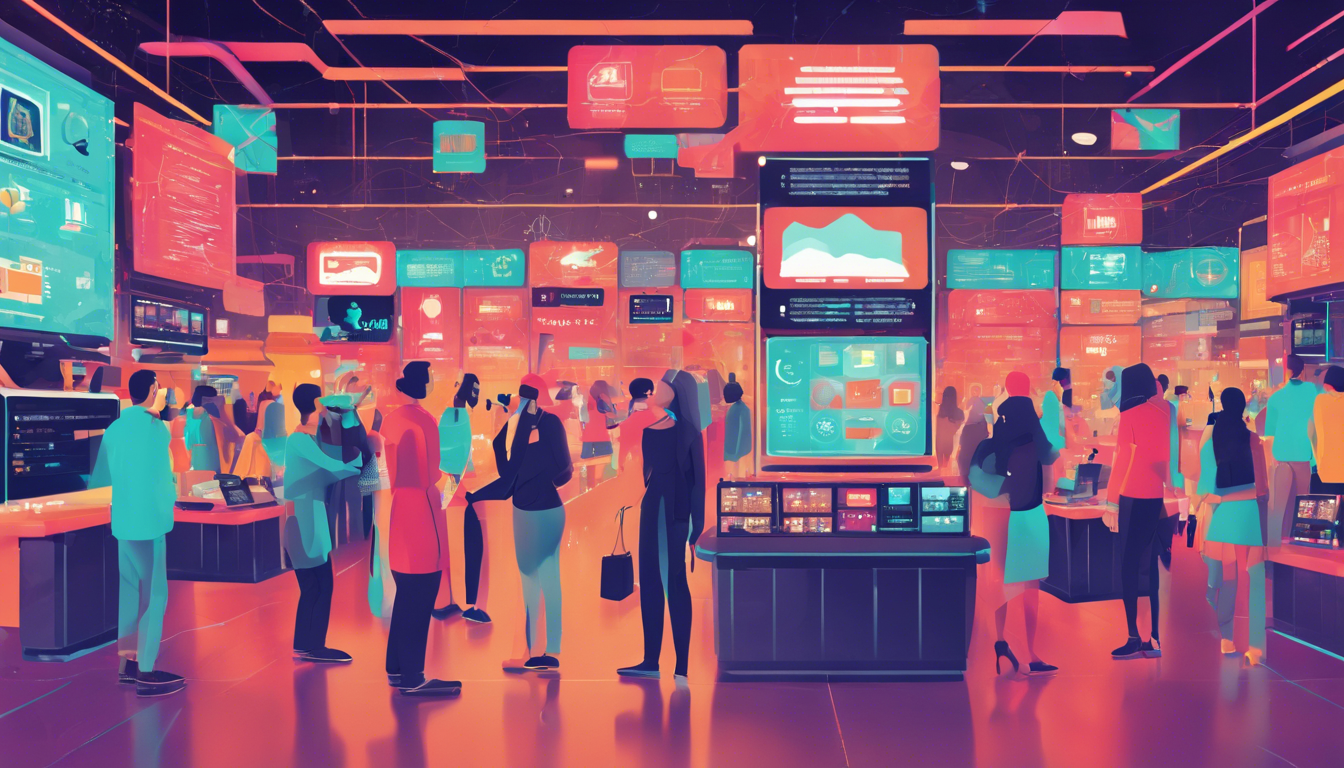Table of Contents
In the rapidly evolving landscape of digital marketing, businesses are increasingly turning to artificial intelligence (AI) to gain a competitive edge.
AI for marketing is not just a passing trend; it is a game-changing approach that transforms how companies interact with consumers and leverage data.
From personalizing user experiences to predicting future consumer behavior, AI is revolutionizing marketing strategies across various sectors.
In this article, we will explore the fundamental concepts of AI in marketing, its role in data-driven approaches, the personalization of customer journeys, and emerging trends that will shape the future of digital advertising.


Predictive Analytics: Anticipating Consumer Behavior with AI
In today’s rapidly evolving digital landscape, businesses are increasingly turning to AI for marketing strategies, particularly through the lens of predictive analytics.
This powerful tool allows companies to anticipate consumer behavior by analyzing vast amounts of data to identify patterns and trends.
By harnessing the capabilities of AI, marketers can not only enhance their understanding of customer needs but can also develop highly targeted campaigns that resonate with specific audiences.
For instance, predictive analytics can unveil insights about potential purchasing habits, enabling brands to tailor their offerings and optimize promotional strategies accordingly.
As consumer expectations continue to rise, effectively leveraging AI for marketing becomes not just an advantage but a necessity for staying competitive and relevant in the marketplace.
AI-Powered Tools for Optimizing Digital Advertising Campaigns
In the fast-evolving landscape of digital advertising, innovative solutions are paramount for staying competitive, and that’s where AI for marketing comes into play.
AI-powered tools leverage sophisticated algorithms and machine learning to analyze consumer data, optimize targeting, and enhance ad performance in real-time.
By utilizing AI, marketers can segment their audience more efficiently, predict customer behaviors, and tailor personalized ad experiences that resonate with potential buyers.
Tools like programmatic advertising platforms, predictive analytics software, and automated bidding solutions not only save time but also improve return on investment (ROI) by minimizing ad spend on ineffective campaigns.
As brands increasingly adopt AI for marketing, they can make data-driven decisions that reflect current trends and consumer preferences, ultimately leading to more impactful advertising strategies.
Frequently Asked Questions
What is AI in marketing and how does it work?
AI in marketing refers to the use of artificial intelligence technologies and algorithms to analyze data, automate processes, and enhance marketing strategies.
It works by processing large volumes of data to derive insights, make predictions, and deliver personalized experiences to consumers.
How does AI improve customer personalization in marketing?
AI improves customer personalization by analyzing individual consumer behaviors, preferences, and interactions.
This data allows businesses to create targeted marketing campaigns and content that resonate with specific customer segments, leading to enhanced engagement and satisfaction.
What role does predictive analytics play in AI marketing?
Predictive analytics involves using AI algorithms to analyze historical data and predict future consumer behaviors.
This capability allows marketers to anticipate customer needs and optimize their strategies accordingly, leading to higher conversion rates and improved ROI.
What kinds of AI-powered tools are available for digital advertising?
There are several AI-powered tools available for digital advertising, including programmatic advertising platforms, chatbots for customer service, predictive analytics software, and tools for A/B testing and campaign optimization that help improve ad performance and targeting.
What future trends can we expect in AI for marketing?
Future trends in AI for marketing include advancements in machine learning algorithms, increased use of natural language processing, further integration of AI with big data analytics, and a focus on ethical AI practices to ensure data privacy and customer trust.
